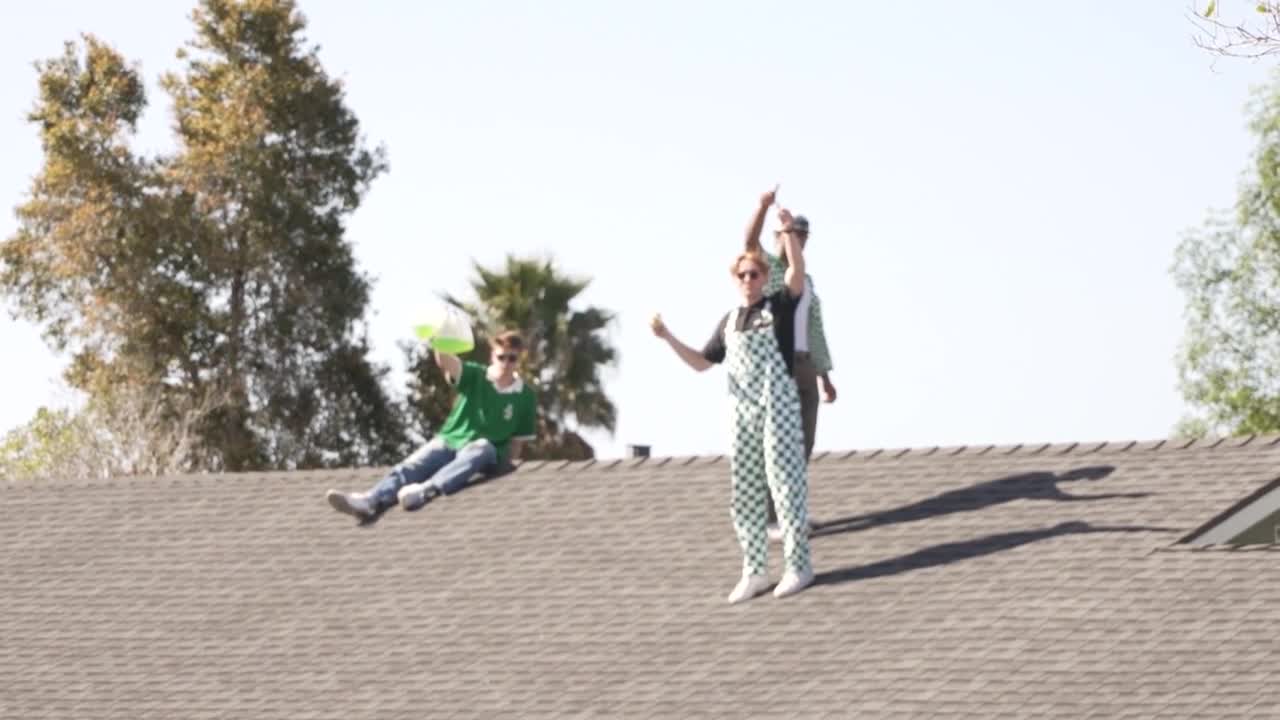For years, whether it’s St. Patrick’s Day weekend, Halloween weekend, Rush or other times throughout the school year, residents near the Cal Poly campus have expressed concerns over potential illegal fraternity activity and noise disruptions in their neighborhood.
In an email to the city council this past week, one person wrote, "I think it's time to tell the residents in the Alta Vista and lower Monterey Heights neighborhoods that there is no rescue mission coming to save them... they are on their own."
The city council concluded with a response to the 14-page Grand Jury Report released back in May titled "Round and Round with Cap and Gown" that outlined the issues with illegal fraternities and noise violations in the surrounding neighborhoods of Cal Poly, where zoning does not allow those types of activities.
“If they stay within code, they're not collapsing a sewer line or destroying landscaping or knocking over fences, which has happened," longtime resident and attorney Stew Jenkins said.
“It sort of brings down the kind of quality of life when you have your neighborhood trashed every weekend,” resident Scott Loosly said.
A long investigation by the San Luis Obispo County Grand Jury culminated in six different findings in June, claiming the city failed its obligations to protect residents from illegal partying and noise disruptions in the low-density and medium-density residential neighborhoods (R1 and R2) around Cal Poly.
A longtime resident in the area shared a video with KSBY News of a party they say took place in the area last year that includes the type of behavior outlined in the Grand Jury’s report. Similar videos were taken in 2023 and 2024 and posted to this website created by residents in the neighborhood, outlining some of the behaviors they experience in their homes.
The report also provided seven recommendations, which included proactive measures and plans to eliminate illegal street parties, identifying illegal fraternities, a student overlay zone and different fee structures, to name a few.
“There's more work to be done there," City Manager Whitney McDonald explained. "A recognition of me saying just wait or we're working on it and we have some patience with us is really hard if your life is being disturbed.”
While the city council is aware of the issue and has been in discussions on how to fix it, McDonald said in some cases, they’re already implementing some of the recommendations in the report.
“It requires a lot of nuance and discretion around determining when something is a violation and not a violation," McDonald said. "Not only is it just good practice, but it's due process. There's a lot of different considerations that we have at play when it comes to trying to get people to comply.”
The city says that since 2010, they’ve reduced noise complaints by 50%, were successful in halting St. Patrick’s Day weekend activities and have already started holding fraternities and sororities accountable through Conditional Use Permit enforcement and enforcement of zoning laws.
The city council voted not to immediately implement the changes recommended by the report but did mention that things like a student overlay zone and further discussions with Cal Poly were required to effectively address the issue.
When the report came out, the city responded with a 24-page document outlining inaccuracies in some of the information the Grand Jury reported.
Jenkins suggests the city should take action to obtain the addresses of Greek Life chapters as a part of AB524 or the Campus-Recognized Fraternity and Sorority Transparency Act.
“The most immediate action would be to compel Cal Poly to provide the information on where these satellite houses and fraternity houses are in the R-1 or R-2 zones,” he said.
McDonald pointed out that a key stakeholder in this debate is Cal Poly, saying that both the city and university have been actively discussing solutions.
When asked, Cal Poly responded with an e-mail saying, “The university is committed to being a good partner and working toward solutions. Beyond that, we do not have additional details to provide at this time.”
The city encourages residents experiencing issues to call and report any noise or code violations, but many residents who have experienced the noise and disruption for years have moved away.
“I can’t say that I haven't thought about moving sometimes when the negative aspects sort of are overwhelming, but it's a nice neighborhood," Loosly admitted.
In an effort to open lines of communication with neighbors and students living off-campus, Cal Poly student leaders last week began the "Meet your Neighbor" initiative, which is a social media competition where students are encouraged to talk to their neighbors and form connections.





